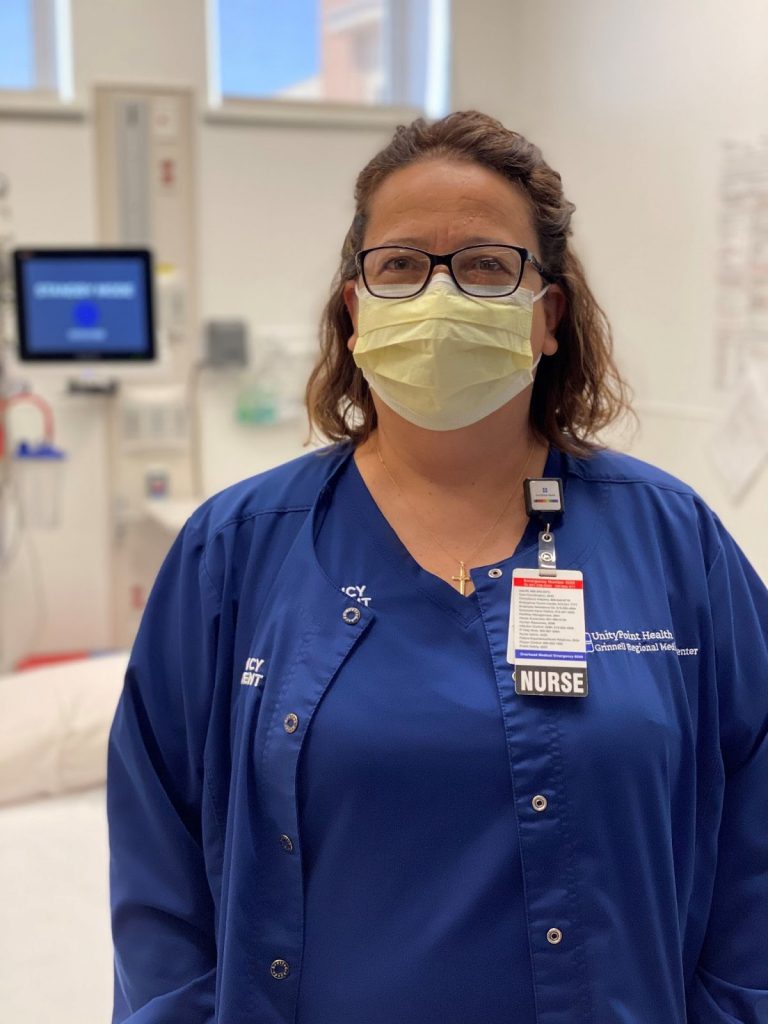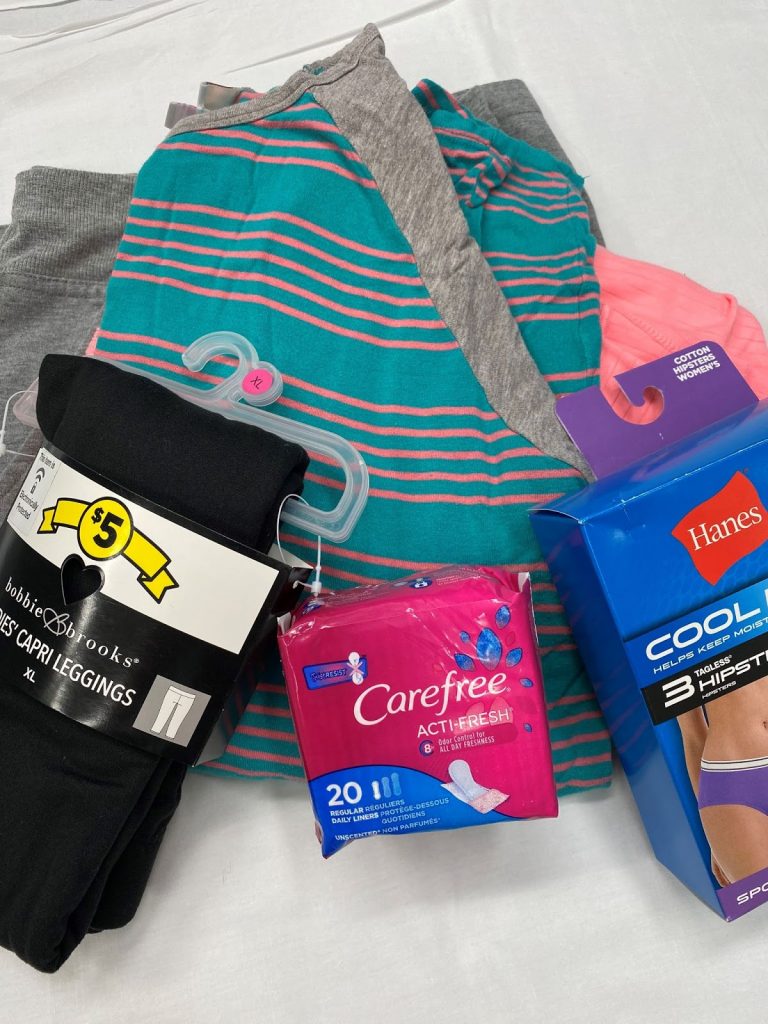By Emily Barske, Business Record editor

Like many in the medical field, when asked to explain what she does, Delrae Hennessy first tells people what the acronym for her job title means. “SANE” stands for sexual assault nurse examiner, she’d explain. And then she’d go on to tell them that SANEs are registered nurses who have completed specialized training specifically for helping patients who have experienced a sexual assault or abuse, and that they collect any evidence that would be used in a court of law.
Hennessy, who has been a certified SANE for 2½ years, works in the emergency room at UnityPoint Health-Grinnell. I talked with her about what it’s like to be a sexual assault nurse examiner.
Empathy is key: Nurses are “all passionate about caring for our patients. We want to reassure them, provide comfort during uncertain times. With the SANE nurse, [the patient has] been through a sexual assault or abuse. So empathy is really important with your care, ensuring that their safety is a priority and just delivering a holistic approach to the encounter,” Hennessy said. Sometimes those encounters are only a couple of hours long, and there is a lot of physical and psychological care to provide in that time.
- The job requires constant reassurance. SANEs are trained to understand the anatomy knowledge necessary, but a big part of the job involves psychological support and keeping survivors informed. SANEs make sure the patient is comfortable before starting the sexual assault exam (sometimes refered to as a “rape kit”) and during every step of the process. Just a few of those steps are: checking for strangulation, head injury, wounds and drug or alcohol intoxication; assessing orifices involved in the sexual assault for trauma; taking photographic documentation; and collecting clothing as evidence.
- You let the patient talk. “You don’t phrase questions like you are accusing them or blaming them for anything. … You’re very careful you aren’t portrayed as being accusatory or [saying], ‘Why did you do this, or why didn’t you do that?’ You never do that – you just let them talk.”
Who else is involved: Sexual assault advocates are sometimes present for exams. If law enforcement brings the survivor to the hospital, an advocate from a victim’s services agency or nonprofit is called as part of the process. The hospital may also call for an advocate if the survivor calls ahead or comes in outside of law enforcement, Hennessy said. While the SANEs also provide emotional support, the advocates can help answer questions about the survivor’s rights within the justice system if they go forward with reporting the assault and can connect them to resources they may need, regardless of if they pursue criminal charges.
- Access to advocates can be limited, however. Especially in rural Iowa. Sometimes the nearest advocate may be two hours away, and survivors often choose to move forward with the exam rather than waiting for the advocate to arrive. Grinnell is fortunate to be located between Des Moines and Iowa City, which can help with access to advocates, Hennessy said.
- But still, more are needed. She said those wanting to make a difference should look into volunteering as a sexual assault advocate with local agencies.
- Regardless of whether an advocate is present, the SANEs make sure survivors are safe in the hospital and that they feel safe when they leave.
Be aware. Much like sex trafficking, people don’t always realize the prevalence of sexual assault. Be cognizant that it happens and that people will not always tell anyone if they’ve been assaulted, Hennessy said.
- Anecdotally, the pandemic has not slowed down the number of sexual assault survivors coming in, she said.
There are a limited number of SANEs at health care institutions, and some facilities don’t have any at all. Hennessy is among a team of four SANEs at Grinnell, thanks in part to funding from a Grinnell College grant that paid for certification.

Want to help? As part of sexual assault examinations, survivors often have to turn over clothing and undergarments. Many hospitals, including Grinnell’s, accept donations of these items so survivors have clothes to wear home and other resources. If you are interested in donating, check the UnityPoint Health-Grinnell’s foundation page for options and contact information.

